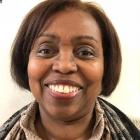The English poet, William Cowper (1731–1800), penned the familiar phrase, “God moves in a mysterious way, His wonders to perform.” These lines distill several New Testament passages referring to the mystery of the kingdom of God to the world and to individuals. A mystery is never something that is permanently opaque in the Greek language of the original texts. While it may have been a secret or hidden, a mystery is something once unknown that is becoming known; it is a thing that is being revealed, unfurled, and discovered as God moves it from darkness into light. Once in the light, we can perceive it. God communicates to us in expanding rays of illumination in order to disclose “the mystery of his will” for us.
These thoughts seem particularly apt for describing a career that has developed without an internalized blueprint or a comprehensive plan. While I now recognize my calling to teach, write, and work in the academy, that perception came slowly as God shepherded me. Nudges, intuitions, signs, and moves began to add up to the mystery of his will for my life. They formed my path.
The path to graduate school
My maternal grandfather’s repeated, proud declaration during my preschool years, “You’re going to be my teacher-girl,” was prescient. In my senior year of college, when I sought reference letters from professors for master’s degree programs in international relations, they instead pushed me to apply to at least one doctoral program with the advice, “You want to go where all the smart people are.” I obliged, but only to get them off my back. My sister and my mother were confused by my indecision. “Everyone knows that you’re going to get your Ph.D.,” they insisted. I always loved learning and had received high grades in the excellent public schools and the Ivy League college—Cornell—I attended. Why didn’t I think I should obtain a doctorate?
The graduate school acceptance letters arrived. My top choice for the M.A., Princeton’s Woodrow Wilson School, opened its doors to me with a fellowship and small stipend. Yet a visit to the program was disquieting. One of the deans, while warm and kind, kept emphasizing the prestige and fame of Princeton’s students and alumni; I was unimpressed. Due to a shortage of off-campus apartments, I’d have to live on-campus in a graduate student dorm where academic robes were mandatory attire for dinner. I was uncomfortable with the prospect of spending two years there. I discovered a democratic spirit feeding an egalitarian well within me that was very deep.
Most of the graduate students at the Wilson School I met that day were international students, mature adults coming from various government agencies in their countries. They were at Princeton to polish their training and become heads of national cabinet offices. They were seriously policy-oriented and serious number-crunchers. I wasn’t like them.
At the exact same time, a novel knowing arose inside me: I had to attend graduate school in a large city. This realization was unsettling and unwelcome. Where were these new thoughts coming from? I was a country girl raised in the lower Catskill Mountains of New York State. I never intended to return to my rural hometown; even before the signs of its economic decline became obvious; the place had begun to feel too small. My plan, hatched during junior high, was to have a future in Washington, D.C., or Paris and somehow find my way in the cosmopolitan world of affairs of state. But returning from Princeton, echoing from somewhere I could not yet name, I sensed a resounding “no”—not only to the institution, but also to its location. I would not disobey this compelling voice.
The University of Chicago was the only other university that matched Princeton’s offer of aid for my graduate study. So there I went with double acceptance in the master’s program in international relations and the doctoral program in political science—the sole doctoral program to which I had applied.
The call to academia is refined
In my first year of graduate school, I came to an adult faith in Jesus Christ, and began attending weekly InterVarsity chapter meetings. This was an exciting time in my life. I was 21 and still unsure about career, but I experienced profound joy from my new understanding that all of life had Purpose and that God--who I always knew was “there”—was good, close, knowable, and engaged with me.
More discoveries followed. Despite good grades in the subject, I didn’t like political science. Toward the end of my master’s program, I happened to run into a former professor. She knew of an opening for an Urban Affairs Specialist at the Chicago Urban League and thought I should apply. They hired me, amazingly, with no formal training in urban studies.
I had a lot to learn, and quickly. But during my two years at the Urban League, I embraced my penchant for historical inquiry. No matter what investigative report I was assigned—neighborhood transition, voting behavior, ambulance availability, neighborhood disparities in pricing consumer goods—my thinking always began with the past.
I also learned to like Chicago as I confronted my longstanding curiosity about urbanism and its relationship to rural life. I heard of a fairly new field called urban history in which you could actually study the sorts of questions I had. So back to graduate school I went for a doctorate in history, with concentrations in U.S. urban history, U.S. diplomatic history, and African colonial history. As I moved toward completion of the program, it was clear I liked researching and writing history, but I was ambivalent about college teaching. My adviser had good advice. “If you’re unsure about postsecondary teaching, try it at a place where you have to do a lot of it,” she prompted.
Entering a teaching career—and so much more
I accepted a position at Bard College—a small, four-year, liberal arts school on the Hudson River in New York State, established in 1860 as St. Stephen’s College by leaders in the Episcopal Church. Tenure, followed by promotions up to full professor, validated my aptitude for teaching and historical scholarship. Along the way, my background in social history became known regionally at a time of transition in public history circles. Museums, historic sites, historical societies, and educational television were seeking the expertise of historical consultants. These operations solicited my services and I happily enjoyed a parallel career in the world of public history as a consultant.
I did what was needed and what made curricular and collegial sense to me at the time through the mystery of God’s will for my life. He had plenty for me to do: I helped create a minor that became Studies in Race and Ethnicity; I chaired the history department, the American Studies Department, and a new program in African Diaspora Studies; I helped design Bard’s Master of Arts in Teaching program; I taught courses through Bard’s Prison Initiative, mentored first-generation students with special scholarships, and taught early college classes to high schoolers. There was a marvelous feedback loop in all of this as college teaching and research expertise led to public history consulting, and that back into teaching, research, and more writing.
Working toward change for women faculty
In addition to all the challenges of life as a new professor, I became pregnant in my first year of teaching at Bard. This was unheard of for tenure-track female faculty. In fact, there were very few female faculty period. Moreover, despite Bard’s past claims to celebrated African-American faculty members, those most noted, Ralph Ellison and Toni Morrison, had in fact occupied temporary, visiting positions. I was the first African-American hired to a tenure-track line in Bard’s history, so I knew that my actions were being scrutinized in a special way. At that time, my husband and I, married just a year, were medically advised, due to physiological complications, to try to become pregnant as soon as possible if we hoped to become parents. We knew we wanted to live a life, not just a career, and we wanted children. So I became a mother at the end of my first year on a tenure-track line.
Bard, as most universities, was not prepared to deal with full-time female faculty with small children. I realized if the script for this story needed to be co-written by a woman who happened to be black, then so be it. The college nursery school had been established by and for faculty wives—not women with children who were professors. We began to work toward change regarding female hires, maternity leaves, nursery school hours, babysitting, and childcare. That task continues among junior faculty today.
A Christian witness on campus
I hadn’t expected the disdain toward Christianity I encountered. With the exception of Sunday School and Bible studies, my education was entirely secular from kindergarten through the Ph.D. I was familiar with post Enlightenment epistemological systems. But I also identified with the apostle Paul’s declaration: “I know whom I have believed, and am convinced that he is able to guard what I have entrusted to him until that day.” Where I work, faith in the classroom is undermined, dismissed, discouraged, unknown, and/or too often misunderstood. I suspect that my colleagues consider me unreconstructed and a bit of a puzzle about this religion thing. But generally I have felt respected by my faculty peers for my training and seriousness, and this is a blessing.
Bard does not permit outside parareligious organizations such as InterVarsity or Hillel to maintain an ongoing presence on campus. All student life must be student-initiated and student-run. This has resulted in an extremely episodic appearance of Christian fellowships. I am available to bolster Christian life. Sometimes students have welcomed my help for the group or sought individual spiritual mentoring from me or other Christian faculty. At other times, they have preferred their independence. Typically, once an active fellowship group dies out because its best leaders graduate, it will be over five years before another student cluster appears, so presence on campus of Christian faculty can be an encouragement to Christian students there.
A glimpse of divine logic at work
I was astonished to be awarded an endowed chair by my college president four years ago. Yet, besides the recognition of publications, there seemed to be a divine logic at work here. The individual after whom it is named, Lyford Paterson Edwards (1882-1984), was an Episcopal priest and pioneer American sociologist who taught at Bard for nearly thirty years. Like me, Edwards wrote his dissertation at the University of Chicago. He was a historical sociologist; I am a social historian. Like me, he was a Christian concerned with social problems. One biographer reported, “Students in Edwards’ classes were sent into prisons, brothels, and picket lines to learn about social issues first hand.” While not exactly the same claims can be made about my students, those who I have advised have started prison education programs, become union organizers, pursued environmentalist concerns, sought immigration reform, become teachers in impoverished urban areas, and worked for social justice in city planning. Edwards seemed to share my passion for living the Christian life both vertically in loving God, and horizontally in loving my neighbors. I approach the administrative position I was asked to take up three years ago as Vice President of Academic Inclusive Excellence with these goals in mind. “He knows the way I should take.”



